Extension vs conservatory — which is right for your home?
Weigh up whether an extension or a conservatory is the best way to add space with our expert guide
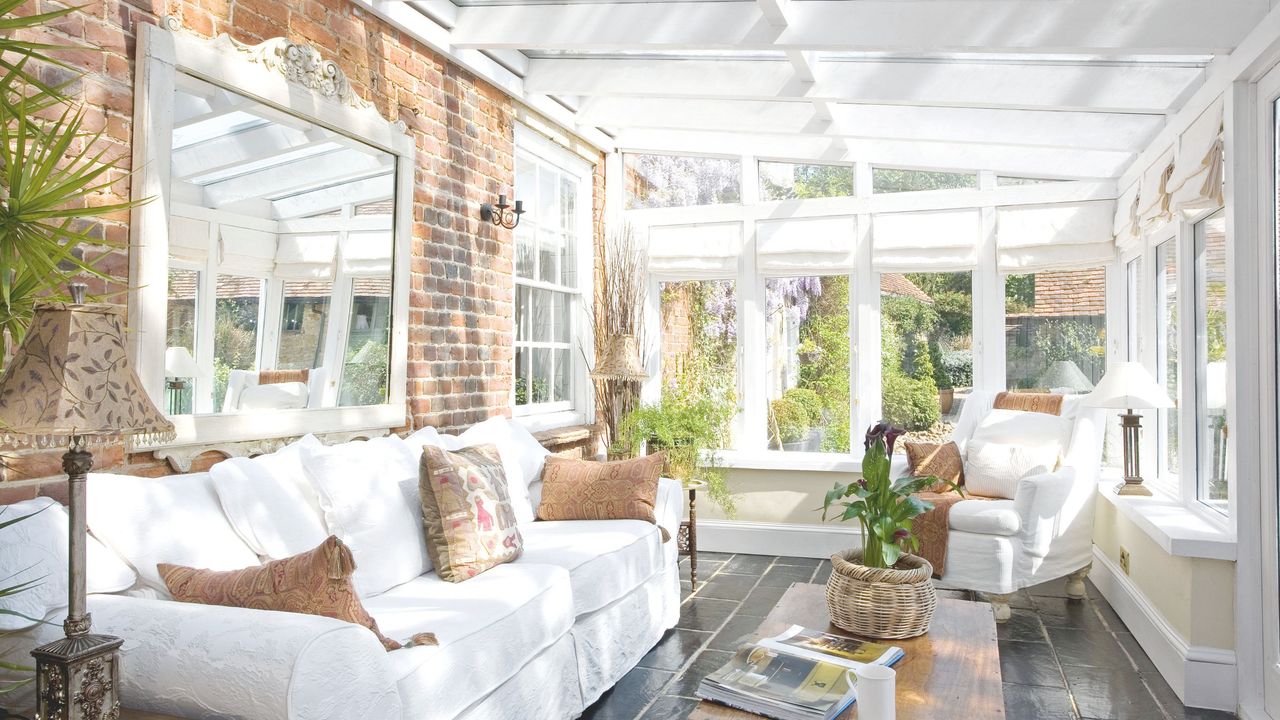

When your home is in need of some extra space, an extension or a conservatory could be the answer. Building on with either can provide the extra floor space you’re craving along with benefits like an improved indoor-outdoor connection.
Both extension ideas have plenty of potential so it’s worth comparing the merits of the two choices, along with any potential disadvantages, in order to make the right choice for your lifestyle and your budget.
Our expert guide lines up an extension vs conservatory to reveal exactly what the differences between them are to make your decision easier, as well as looking at which might add more value to a home.
Should I get an extension or a conservatory?
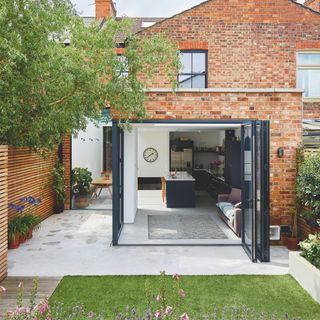
Building both an extension and a conservatory make a home bigger, but which is the better option for expanding your space depends on why you need extra room, where, and how much.
‘A conservatory is a good choice for you if you need space added to your home to create a room for a specific use and you do not mind if this room is separated from the rest of your living, kitchen and dining areas,’ says George Omalianakis of GOAStudio London residential architecture.

George Omalianakis is a chartered architect (RIBA) specialising in extensions to historic and contemporary residential properties across London. He likes to create spaces that blend modern additions with period features and with an overarching focus on environmental design principles. He set up his practice, GOAStudio London residential architecture, in 2009.
An extension, meanwhile, offers many options. ‘We tend to find that extensions work best and are more desirable for families looking to expand on the space they have in a functional way,’ says James Bernard, director of Plus Rooms. ‘The size and design will need to be realistic to budget and planning restrictions, but there is much more space that can be utilised with an extension, meaning more room for creativity and innovation, such as incorporating two-storey plans. Extensions can be to the front, side or rear of the property,’ he adds.

James Bernard is director of design and build company Plus Rooms alongside his brother Robbie. The company has more than 14 years’ experience in designing and completing all types of home extensions and has now completed over 1,400 home extensions in London.
Pros of an extension
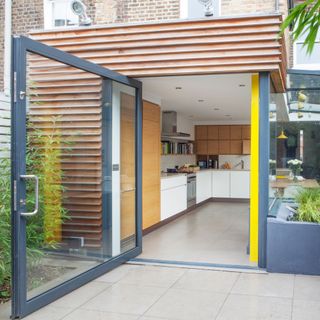
- Ground floor expansion. ‘The connection to the existing house can be seamless,’ says architect Ben Ridley, founder of Architecture for London. ‘A well-designed extension can therefore significantly increase the size of existing spaces.’ A two-storey extension is also a possibility.
- Flexibility. ‘Extensions to your home allow a much larger degree of flexibility about how you can use them in isolation and as a new addition to your layout,’ says George Omalianakis.

Ben Ridley founded Architecture for London in 2009 and has since designed a number of widely published and award-winning projects. Architecture for London are award-winning architects dedicated to the creation of inspirational architecture and interiors, and the practice’s residential projects include house extensions at all scales.
Cons of an extension
- Poor design can compromise the ground floor of a home. Building a rear extension can leave rooms that were formerly at the back of the house darker than before if the extension design isn’t well thought out, points out estate agent Simon Taylor.
- Higher cost. An extension, even a single-storey addition, can involve a bigger spend for the extra floor space.
- Longer build time and more disruption – particularly if changing the plan of the ground floor, too.

Estate agent Simon Taylor has more than 20 years of property experience and runs his own estate agency in north and east London. He previously worked for Purple Bricks for five years and provides advice to clients on cost-effective ways to create more space and add value to their home.
Pros of a conservatory
- Indoor-outdoor connection. ‘Conservatories are more connected with the outdoors than a traditional solid extension,’ says James Watchorn, design and sales manager, Vale Garden Houses.
- Natural light. ‘With expansive glazing, a conservatory floods your living space with sunlight, creating a bright and welcoming atmosphere,’ says Karen Bell, sales director at David Salisbury.
- Complementarity with some homes’ architecture. ‘Certain properties are more visually compatible with an extension that has a higher proportion of glazing, such as a conservatory,’ says James. ‘This is because the higher proportion of glazing offers a much softer visual than a typical brick and mortar extension.’

Karen Bell is sales director at David Salisbury, which designs bespoke timber orangeries, garden rooms and kitchens. Karen has 16 years of industry experience and is passionate about interior and architectural design and, with her team of dedicated designers, works with clients to fulfil their design briefs and transform their homes.
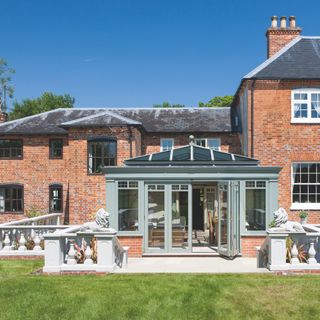
Cons of a conservatory
- Reduced privacy. ‘Due to the increased proportion of glazing, a conservatory is inherently less private than a solid extension,’ says James Watchorn.
- Less connection with the ground floor. ‘A conservatory will be a separate room,’ says Ben Ridley.
- Design and materials can compromise usefulness. ‘Where inadequate ventilation and sub-par building materials are used, this could leave you with a conservatory that is too hot in summer and too cold in winter,’ says James. However, he notes that a reputable and trusted manufacturer won’t design a room with these problems.

James Watchorn leads the design department for Vale Garden Houses, designing conservatories, orangeries and extensions and has worked on many heritage buildings and influential projects across the United Kingdom.
What’s the difference between an extension and a conservatory?
If you’re choosing between an extension and a conservatory, it’s worth bearing in mind their differences.
Get the Ideal Home Newsletter
Sign up to our newsletter for style and decor inspiration, house makeovers, project advice and more.
‘A conservatory typically consists of at least 50 per cent glass in its walls and 75 per cent in the roof, offering a light-filled connection to the outdoors,’ explains Karen Bell. An extension, by contrast, can have solid walls and roof, although it might incorporate large areas of glazing.
The two can be distinct when it comes to the building regulations. ‘Conservatories may be exempt from building regulations providing that they meet certain criteria, including being a maximum size of 30 sq m, being independently heated, and being separated from the house by external quality doors,’ says Ben Ridley.
Build time likely differs, too. ‘Construction should be faster for a conservatory, as they are generally simpler structures and can be largely fabricated offsite,’ says Ben.
However, the consent process is similar for both conservatories and extensions, Ben explains. ‘It should be possible to secure consent for an extension or a conservatory through either permitted development (assuming relevant PD criteria are met), or planning (assuming compliant with local policy),’ he says.
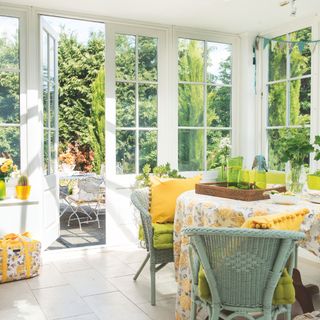
Which is cheaper – an extension or a conservatory?
If keeping the cost of enlarging your home lower is important, typically a conservatory will be preferable.
‘A rear extension could cost you £30,000 or £40,000 but to install a conservatory could be half of that,’ says Simon Taylor.
However, do bear in mind that the costs of an extension or a conservatory can widely depending on size, specification and more, so you should always get quotations to compare options.
Which adds more value – an extension or a conservatory?
If your goal is to add value to your home as well as expand living space, an extension might prove the better choice.
‘Typically an extension will add 5 to 20 per cent of extra value to a home depending on the size, while a modern conservatory will add slightly less at 5 to 7 per cent,’ says Robin Edwards, a property buying agent at Curetons. ‘However a conservatory may be a significantly cheaper option than a bespoke extension, particularly if you buy an off-the-shelf design,’ he points out.

Robin Edwards is currently a partner at property buying agents Curetons and has been working in prime residential property for nearly 20 years. He regularly advises clients on the purchase and development of properties, including on the potential of renovating and extending their homes.
Can a conservatory devalue a house?
A conservatory could devalue a house in some circumstances. ‘A conservatory often creates a physical barrier between one of your living spaces and your garden,’ says George Omalianakis.
The need to separate it from the house with an external grade door could also prove an issue. ‘This doesn’t only reduce the amount of daylight and sunlight to these adjacent spaces, but it also reduces their functionality as they often become corridor-like in their use,’ says George. ‘This is something that can be reflected in estate agents’ valuations, depending on your area and the buyer demographics,’ he notes.
And a poorly designed conservatory can devalue a home because it advertises its problems. ‘A survey by CI Group showed one in three people use theirs as a dumping ground,’ says Simon Taylor. ‘Sometimes I'll see conservatories for bikes and storage with boxes piled up because they struggle to regulate the temperature and that’s a real shame,’ he adds.

Sarah is a freelance journalist and editor. Previously Executive Editor of Ideal Home, she’s specialised in home improvement, interiors, gardens and property for over 25 years. As well as writing about home improvements including extensions, loft, basement and garage conversions, fitting new kitchens and bathrooms, installing new windows and doors and making eco-friendly upgrades, Sarah has taken on a range of projects in her own homes and she is a serial house renovator.
-
 What disinfectant can I use in a washing machine? Cleaning experts reveal the product you should avoid at all costs - and to use instead
What disinfectant can I use in a washing machine? Cleaning experts reveal the product you should avoid at all costs - and to use insteadDisinfecting is key... but only if you use the right product
By Lauren Bradbury
-
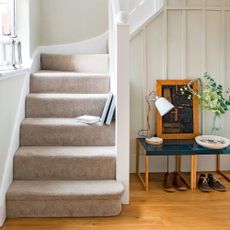 How to fix creaking floorboards under carpet — banish that pesky squeaking without damaging your flooring
How to fix creaking floorboards under carpet — banish that pesky squeaking without damaging your flooringExpert advice on how to fix creaking and squeaking floorboards when they're hidden under carpet
By Marina Rabin
-
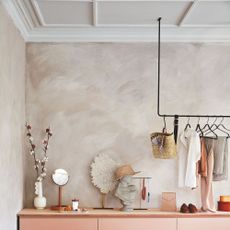 I tried the ‘one in one out’ decluttering method – it’s overhauled my whole approach to shopping and getting rid of things
I tried the ‘one in one out’ decluttering method – it’s overhauled my whole approach to shopping and getting rid of thingsShopping will never be the same again
By Ellis Cochrane